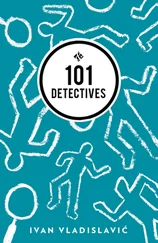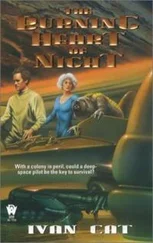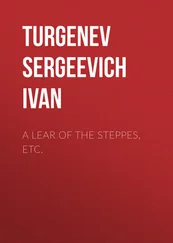Under Nieuwenhuizen’s direction the removers unloaded a settee from the van and carried it to the house. Malgas scrambled out of their way and inspected this item as it sailed past him. It was made of a dark and grainy wood, thickly varnished, barnacled with bubble gum and scratched by countless fingernails, knitting-needles and keys, branded by who knew what cigarette-ends and coffee mugs. It had muscular cabriole legs with ball and claw feet, but its arms were sadly wasted and terminated in arthritic talons. The stuffing was foaming out of the cushions, and springs spiralled out of the brocade. The removers, by contrast, were neatly dressed in spanking new tartan caps (in grassgreen and lemon) and green overalls of a leafier shade with knife-edge creases in the legs and old-gold piping on the cuffs and turn-ups.“Coincidence?” Malgas wanted to know.
In lieu of an answer Nieuwenhuizen walked through the front door without bothering to open it. The removers, clutching the settee like a battering-ram, stomped after him and smashed the door off its hinges. When Malgas saw these rude, unthinking strangers trampling the welcome mat underfoot and barging into the new house without even knocking or doffing their caps, his blood ran cold. Nieuwenhuizen rushed ahead, waving his arms flamboyantly, and the removers hurried after him, bashing down walls and uprooting fittings.
While they went in circles, looking for a place to put the settee down, Malgas stood on the grand staircase possessed by a glorious will to self-sacrifice. His eyes were popping, his throat was burning, his brow was baubled with lymph. Then his soles began to smoulder and he sank up to his knees through the boards. He was almost overcome. But in the nick of time a desperate will to self-preservation repossessed him and tumbled him headlong down the stairs. This dramatic re-entry went unnoticed by Nieuwenhuizen and his cohorts.
The removers brought in heaps of goods. Nieuwenhuizen flung himself around like a rag doll, inciting them to more and more reckless antics. They began to prance and pirouette in their camouflaged tackies, whirling the furnishings through space and weaving after them. They laughed uproariously, and whispered loudly when Nieuwenhuizen’s back was turned, and every time something came apart at the seams or fell into holes or went to pieces they threw their caps into the air and punched one another’s shoulders. They took no notice of Malgas at all. He was invisible.
For an hour on end Malgas dodged around them like a presentiment, opening doors and windows, moving ornaments and artefacts out of harm’s way, even going so far as to place his own soft body between the blunt instrument and the object of his affection. But all these efforts were in vain.
In the inevitable end, Nieuwenhuizen and the removers whipped themselves up into a cloud of dust and typography, and Malgas could no more marshal them than you or I. The cloud boiled and spilled out fists and feet, caps and hats, asterisks and ampersands, dollar signs and percentages, sharps and flats, ›, ‹, and =. Malgas submitted. He flopped down in an emaciated armchair. His hair was full of glass. His mouth was full of dust. His heart was out of order.
“On your feet, Lazy-bones!” Nieuwenhuizen cried, popping out of the mêlée all stuck with quotation marks and iron filings. He kicked the sole of Malgas’s shoe and beckoned him to follow.
Malgas walked behind Nieuwenhuizen to the van. It was a relief to be out in the still air, in the moonlight. He looked back at the house as they walked: he could see the ribs of the rafters through the tiles. Now, more than ever, he wanted to say a few words, but his mind was a riot of capital letters and punctuation which his tongue could not manage. Nieuwenhuizen whistled a song and skipped, but he too said nothing.
They unloaded a freezer, carried it around to the east wing and squelched through the bottom of the moat. A fish out of water applauded flippantly. In a fit of abnegation Malgas steered them through a sliding door and smashed it into a pool of troubled light. He ground the sugary pieces with his heels; he dropped his end of the freezer on a teapoy; he kicked a terracotta statuette into the air. Nieuwenhuizen ignored all these attempts to communicate.
The house reeled around them, but it refused to fall. Malgas could only wonder at the obstinacy that kept it standing even as its chambers filled up with gloom.
Nieuwenhuizen became a child. He ripped open the cardboard boxes gleefully, and his playmates began to scatter his household effects in the topsy-turvy rooms. They propped pictures against the walls and lobbed ornaments onto ledges. They rolled his threadbare rugs over the floors. They piled his copper-bottomed pots and pans in leaning towers and shied them with shoes and table-legs. They threw toilet-rolls like streamers, and handfuls of pills and charcoal briquettes.
When they were finished Nieuwenhuizen gave them money, whisky and cardboard boxes, and they knocked off for the day and went to their van to relax.
Nieuwenhuizen himself prepared to go back to the camp. Before he left he took Malgas aside and said, “Mal, I’ve had a ball here today. I hope you have too.”Malgas opened his mouth but no sound came out.
“What’s the matter with you?” Nieuwenhuizen asked. “Is your nose still out of joint?”
Malgas put a finger on Nieuwenhuizen’s lips to hush him and bundled him out into the night.
Malgas stood for an age in a canted doorway, watching, waiting, while Nieuwenhuizen gathered wood and built a fire, cooked a rabbit, ate it with relish, and sat on a stone nodding off and mumbling a camp-fire lullaby. Then he turned his back on the tableau and ranged wearily through the dim ruins, marvelling at the debris, the balanced bits and pieces, above all, the incongruous juxtapositions, which he listed thus quietly to himself: hat and hammer, rock and paper, headache pill and custard powder, book and trousers, pipe and key, sealing-wax and vacuum cleaner, + and − until he tired of the game. He started on a list of miraculous survivors: light-bulb. . and left it there. He dared not go upstairs: the grand staircase hung by a thread and a nail. He went instead into his room and lay down on the rug, with his head against his toolbox. His hips ached. He shut his eyes, but sleep would not come.
Hip, the house was tossing and turning, its rooms were banging together in the dark. A button sprang off the belly of an armchair and ricocheted, hip, hip, louder and louder, hurrah. Threads unravelled noisily. Whirlwinds swirled out of teacups and ripped through paper bags. Hooray! Portraits of Nieuwenhuizen’s ancestors fell from the walls. Hip, hip, joints disjointed and screws unscrewed, plugs unplugged and locks unlocked, and so on and so forth, hubba hubba, the whole place was coming unstuck. Malgas tossed and turned with the tide en nog ’n piep.
The grand staircase slipped sideways and vanished in a chattering flight of planks and nails. Malgas crept under the scraps of the rug and pulled them tight around him, while fragments of house rained down on him and rebounded into the void. He heard voices whispering, wind howling, machinery clanking. He saw the familiar silhouette of his old rooftop, and Mrs in a frame of amber light, impossibly distant.
Then the house began to flicker and flare, and parts of it flapped away into the night, and parts of it crumpled up like sheets of paper. Malgas was scrunched up and folded flat, and pressed down into the ground with the house.
Time passed.
When the dead hand of the night lay on the small hours of the morning, Malgas lunged into a state of brilliant wakefulness. The air was roaring. It sounded like a torrent of voices, but it was coming from his blood and the heaving walls. The house was trying to pull itself together. Malgas struggled to his feet in the flow. He grunted and groaned with the house, and it breathed him in and out, and it sweated him and bled him and made him ache. Then the air turned to dish-water, as if the dawn had sprung a leak. Colour blazed up in the walls, swept through the ruins, and filled the creased spaces with sunshine.
Читать дальше












